The Changing Perception of Mixed-Breed Dogs

By
Woofz Team Updated on |Reviewed by
Ekaterina EmelyanovaThere are millions of dogs in shelters around the globe waiting to find their forever home – and most of them are mutts.
Key Takeaways
- Shelters are home to millions of dogs, primarily mutts. However, only 16% of people adopted their pets, while 48% turned to breeders and pet shops.
- Social media significantly impacts many people’s choice of pet, with 23% admitting it influenced the breed they chose.
- There are plenty of reasons to favor mutts, such as better health. Given their genetic diversity, 23% believe mixed breeds are generally healthier than purebred dogs.
- However, attitudes toward mixed-breed dogs are changing. Some 44% of pet owners now believe genetic background is unimportant, while just 23% prioritize appearance when choosing a dog
Mixed-breed dogs are often the last pick of the litter among those looking for a pet despite being a blend of everything we love in other breeds: the collie’s intelligence, the poodle’s curls, the labrador's gentleness… No matter the mix, all dogs are good boys and girls.
Woofz surveyed 2,000 pet parents on their attitudes toward breed and how it influenced their decision-making when choosing a companion. The results show that while most still turn to breeders, many now recognize mutts for what they are: a unique pet like none other.
Mixed vs. Pure: Picking Snap-Worthy Pets Over Homeless Hounds
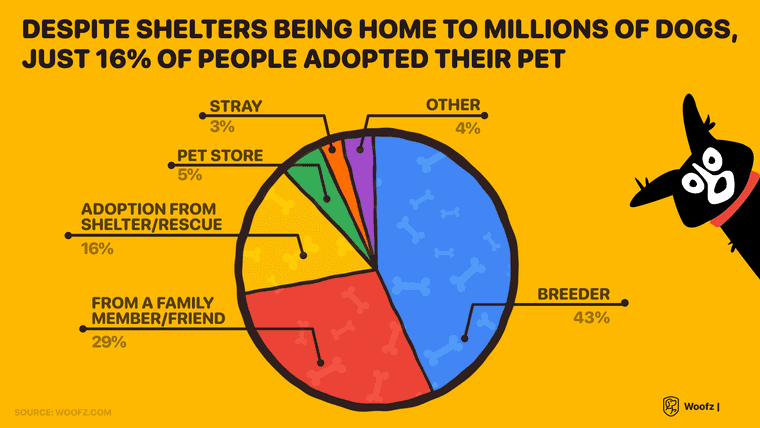
Around the world, animal facilities are full of perfectly good dogs just waiting for someone to take them home, with mixed breeds making up the bulk of shelter populations. Many don't make it, with those struggling to get adopted at risk of euthanasia to keep numbers under control.
And despite this heart-wrenching reality, just 16% of people adopt their pets. Instead, 48% turn to breeders and pet shops searching for purebred pets without a second thought for those living out their numbered days in overcrowded shelters.
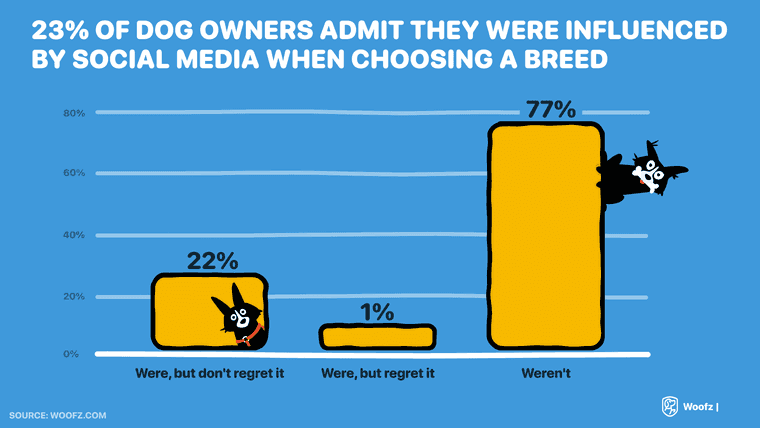
From Jiffpom the Pomeranian and his nine million followers to the fun-loving Doug the Pug, social media has its fair share of famous pups.
We see these adorable influencers and decide that is the dog we want, so we get the same breed and hope for the best. Some 23% of pet owners admit social media influenced their choice.
However, even if particular traits are more common in certain breeds, every dog is unique and has its own quirks. If you want to find the perfect pooch, your best bet is to visit somewhere you can let lots and choose your favorite (such as a shelter).
Breed Bias: Does Dog’s Genetics Really Matter?
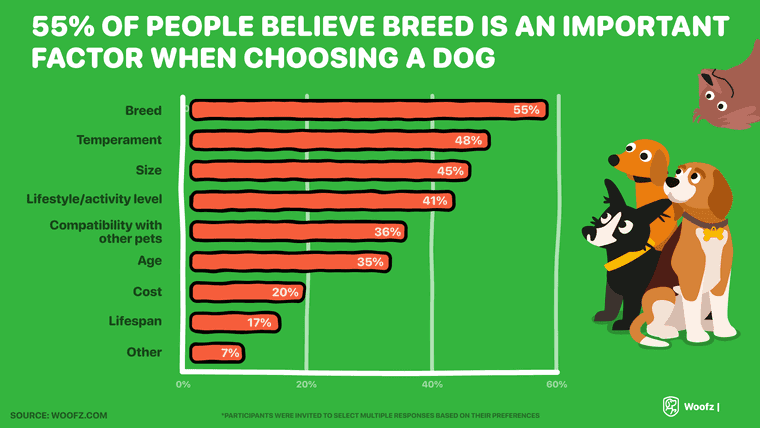
Some 55% of people believe breed matters – and rightly so. Every breed has common characteristics that indicate whether it would make a good companion. You won't want a border collie if exercise is your worst enemy, for example, or a chihuahua if hiking is your idea of fun.
Some 48% say temperament matters, 45% say size, and 41% say activity levels are important to them, all of which are, to an extent, impacted by the dog’s breed. Many people ignore these factors and choose a pet based on popularity or appearance alone – many of which are abandoned in shelters once the novelty wears off.
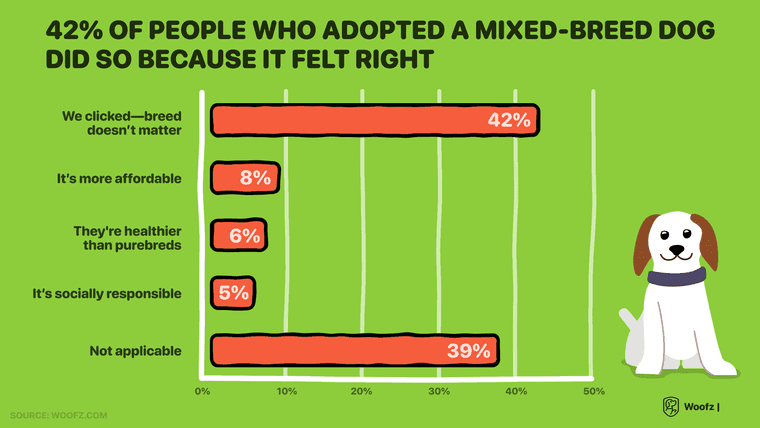
Of those who chose to adopt a mixed-breed companion, 5% say they did it because it's socially responsible, while 8% wanted to save on costs. However, most mixed-breed pet parents did it because the relationship felt right.
Connection is most important, far more meaningful than how many likes they will get on TikTok or whether they will make you look cool. A dog is for life (or at least it should be), and it will be your responsibility to love and care for it for years, so you need to feel a spark.
Pure vs. Mixed: Which is the Healthier Hound?
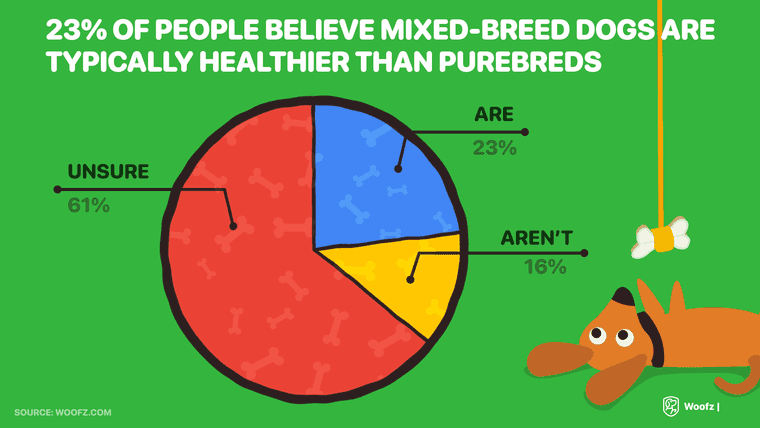
Some 23% believe mixed-breed dogs are typically healthier than their purebred counterparts. Why? Because purebred dogs are bred from a limited gene pool – particularly when trying to achieve a specific look or characteristic, which increases the risk of passing genetic disorders down from generation to generation.
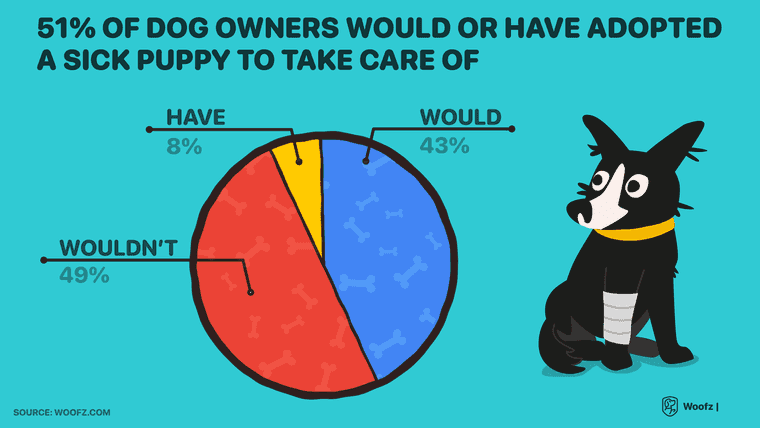
Scientific studies show that purebred dogs are more likely to suffer from conditions such as dysplasia, bloat, and epilepsy. However, many conditions can affect all dogs equally, and mutts are just as capable of falling ill as any other – so you shouldn't adopt a mutt in the hopes of avoiding vet bills.
That said, for 51% of pet owners, it doesn't matter. Sick dogs deserve a loving home, too, and 8% of respondents have taken on the task despite the challenges, while 43% would be willing to.
Mutts In Vogue: Changing Sentiment Toward Mixed Breeds
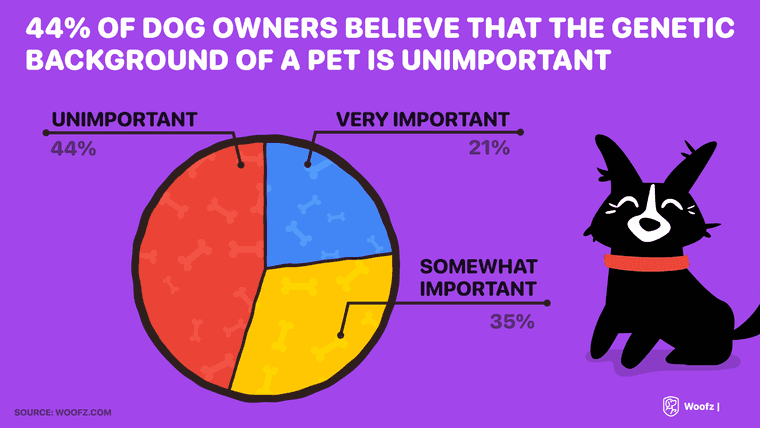
Mutts are often the underdog when it comes to finding a home. However, that sentiment is changing.
While it’s important to consider common breed characteristics to ensure it's a good fit for your lifestyle, 44% of dog owners feel that the genetic background of a pet is unimportant.
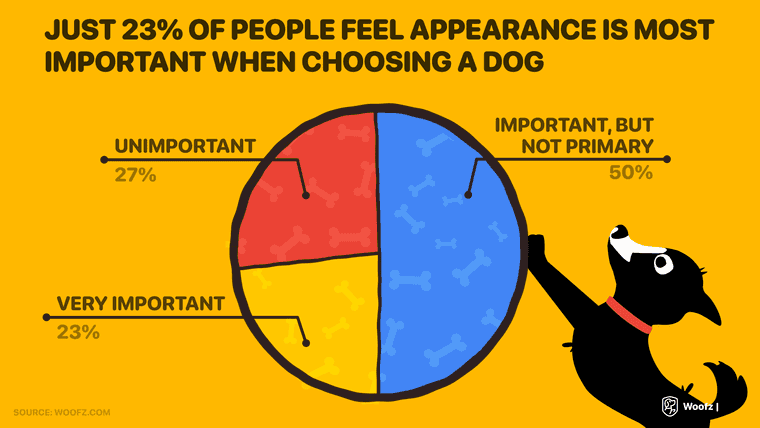
Likewise, while 73% of people believe appearance is important when choosing a pet, just 23% say it's the primary factor. That's good news for our furry friends with ambiguous looks. So long as they can show their character and flash those puppy dog eyes, a loving owner, a comfy bed, and plenty of treats await.
You wouldn't reject a child because of the way they look, so why should a dog be any different? They will be part of your family all the same, and if they’re happy and healthy, nothing else should matter – so show mixed-breed dogs some love this National Mutt Day!
Methodology: To create this study, researchers from Woofz surveyed 2,000 dog owners of all genders aged over 18 years old. The study includes participants from all geographies.